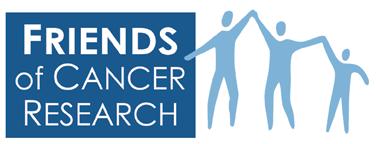CONTACT: Ryan Hohman at rhohman@focr.org/ 703.302.1522

Leading Academic Scientists, Clinicians, and Policy-makers Discuss the future of Comparative Effectiveness Research in the United States
Panel Discussion is being Held in Conjunction with the Release of a Report: “Improving Medical Decisions through Comparative Effectiveness Research: Cancer as a Case Study”
WASHINGTON, DC, May 13, 2009 – Today, Friends of Cancer Research (Friends) will host a forum with leading scientists and policy-makers to discuss recommendations on the future of comparative effectiveness research (CER). This forum is being held in conjunction with the release of an important paper on CER authored by a committee of 25 of the leading biomedical researchers, health economists and oncologists from cancer centers across the US. The paper takes a serious look at improving medical decisions through CER using cancer as a case study.
The report is available online at: http://www.focr.org/comparative-effectiveness.
Today’s panelists include: AL BENSON III, MD, FACP Associate Director for Clinical Investigations, Robert H. Lurie Comprehensive Cancer Center, Northwestern University; SHAWN BISHOP, Professional Staff, Senate Finance Committee, Chairman Max Baucus; STEPHEN CHA, MD, MHS, Professional Staff, Committee on Energy and Commerce, Chairman Henry A. Waxman; CAROLYN CLANCY, MD, Director, Agency for Healthcare Research and Quality (AHRQ); KIM LYERLY, MD, Director, Duke Comprehensive Cancer Center; NEERA TANDEN, JD, Counselor, Office of the Secretary of Health and Human Services (HHS); JANET WOODCOCK, MD, Director of Center for Drug Evaluation and Research, Food and Drug Administration (FDA).
Co-Chair of the Committee and Director of Duke Comprehensive Cancer Center, Dr. Kim Lyerly, explained, “A comprehensive CER program should prioritize the linking of data from government and private entities to build upon and leverage existing data collection and research capabilities. Such an initiative would allow researchers and clinicians to timely analyze data in ways that have never before been possible.”
The report outlines four major recommendations that would enhance medical decision making through CER:
§ Recommendation 1: A comprehensive CER program should be developed to better identify the most effective health care options.
§ Recommendation 2: A comprehensive CER program should link data from federal and private entities to build upon existing data collection efforts and research capabilities.
§ Recommendation 3: CER studies should support the development of “personalized” or stratified medicine.
§ Recommendation 4: Processes should be developed to ensure that information gained through CER is incorporated into clinical practice and better informs decisions made among patients, their health care providers, and payers.
Friends Chair and Founder Dr. Ellen Sigal emphasized the committee’s recommendations in saying, “Ultimately, we need to move closer to the development of a sustainable, “learning” U.S. health care system that develops research insights as a natural byproduct of the care process and gets the right care to people when they need it and then captures the results for improvement.”
The report has received the endorsement of over 25 leading organizations including: Alliance for Aging Research, Autism Society of American, American Association for Cancer Research, American Cancer Society, American Society of Clinical Oncology, Lance Armstrong Foundation, National Patient Advocate Foundation, and Susan G. Komen for the Cure among others. For a full list of authors, and supporting organizations please visit http://www.focr.org/comparative-effectiveness.
###
